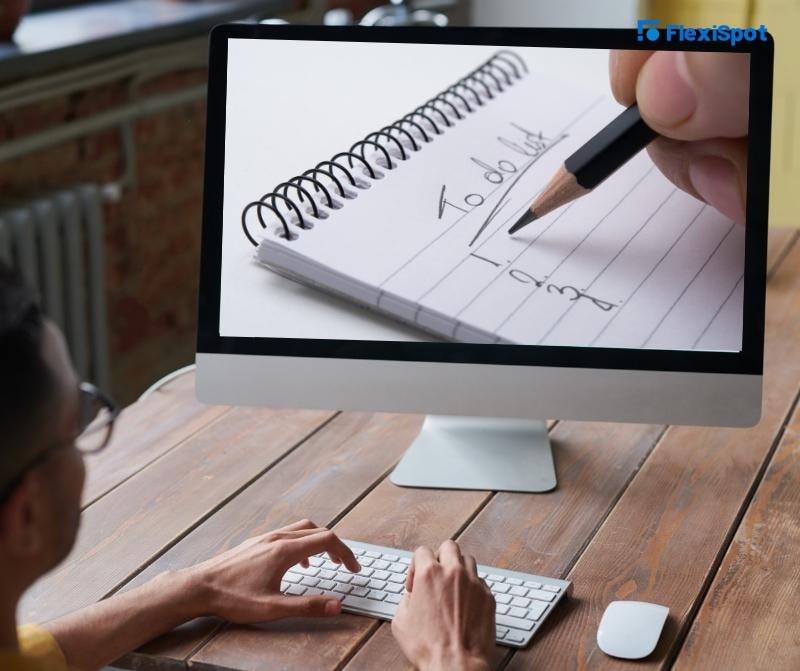Even though we’ve repeatedly felt anxious about working long hours, we still stay in the office overtime or work a little longer in our workspace.
According to the statistics cited by The Muse, an average American works for over 45 hours in a week. 1 in three American professionals works more than 50 hours per week. And 80% of employees answer emails and return phone calls after hours. You would think that this practice would get more work done but on the contrary, it has been found that more time working translates to less work finished.
So why is it difficult to log off of work on the dot? Is it because during office hours, you let distractions consume your time that you fail to prioritize and finish your tasks? Do you say yes to last-minute requests that you are forced to work overtime? Do you think you should always be available to your superiors or teammates beyond work hours?
If this has been going on for a while, it is high time for you to reevaluate and assess your work life. Work hours were set for you to follow. It’s to also help you maintain a work-life balance, and you wouldn’t be able to if you constantly allow yourself and others to make you work overtime. Here are some tips to finally get you out of a situation like this:
1. Start your day with the end already in mind.
You should set your expectations for the day before doing anything else. This means having goals or a to-do list to follow so you could manage your schedule throughout the day and make sure that you have everything checked off in your list.
Don’t just go with the flow of the workday because this will distract you from finishing your priorities. Plan everything you have to do up until the last minute so that you have a good estimation of the time it takes for each task to finish. When the clock strikes 5 or 6 pm, you’re already done or if not, at least you’ve got the major tasks out of the way.
2. Tell everyone what time you will leave.
Avoid late meetings or last-minute tasks by reminding everyone of your dismissal time. Tell your fellow employees that you need this and that by this time so that they’d know not to approach you because you are already set to leave.
This means being firm with your decision. Commit to yourself and let others know and feel how committed you are to it. When you do this every day, your workmates would already have an idea what time you have to leave and the practice will build a reputation for you that you always leave work on time. We guarantee you would feel empowered every time you follow through with this commitment of yours.
3. Allot time for transitioning.
Choose what time you have to leave work or set it in your mind that your work hours are only up until this time. This means you have to clean up your desk or brush up for a project at least 10 to 20 minutes before you leave. Don’t let anything or anyone interrupt you in your transition time. This is your work non-negotiable and stand by it.
4. Work on the most important tasks first.
Sometimes, eight hours at work isn't enough. You just have one too many things to do and you can’t afford to finish all of them in one workday. It’s perfectly okay so don’t crucify yourself for it. What you should do is to start with the heavy or big tasks first. For more guidance, sit down and track everything on paper. Make two columns. On your left, list three to five work priorities for the week. On the right, write down the activities you are able to do in a day. Match these items at the end of the day. Check how much of the things you did in your right list help accomplish your big goals on the left side. This is how you determine if your daily actions contribute to the bigger picture of you getting your priorities done. It will absolutely make you feel more accomplished.
5. Use your time efficiently.
Evaluate your work habits during the day, from the smallest to the biggest ones. Some practices you could take note of are if you check your Inbox every five minutes, reply to every beck and call immediately, be active in your work chatbox the whole day, etc. When you are distracted all the time, your productivity can really be affected which would make you stay at work longer.
You can also use your time efficiently by using ergonomic furniture. Take for instance the Kana Bamboo Standing Desk from FlexiSpot. The wood desktop surface is made of bamboo and is of high quality. It can also fit into any room aesthetic with its zen and sleek design. It has a weight capacity of 275 pounds and its height can be adjusted from 23.6” to 49.2”. Moreover, it has an anti-collision feature, a child lock, and a cable management system. It’ll help you stay alert and focused anytime by easily shifting from sitting to standing position.
6. Make some calls.
If you’ve been going back and forth with a client or a regional office and still haven’t reached a resolution, it’s high time to make the call and settle it over the phone. You may also schedule a meet-up in person so that weeks of communication can finally reach the desired output from both ends.
7. Stay focused using Internet productivity apps.
There are online tools that will help you stay focused on your school or office work. Apps like Cold Turkey or StayFocusd allow you to block sites that are addicting and counterproductive.
Final Thoughts
Logging off work on time helps you start work better the next day. It will also allow you to have a better work-life balance.








